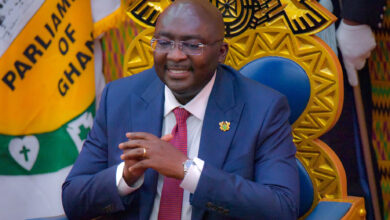FutureDams lead supervisor wants gov’t to rethink ‘one village, one dam’ initiative
The Principal Investigator and CEO of the FutureDAMS project, Professor David Hulme, says although the objectives of government’s proposal to build a dam in every village in Ghana are good, there is a need to rethink the initiative for optimum results.
“The sentiment is in the right direction but it might be better to say ‘how do we improve the water supply for every village?’ In some villages, the answer would be ‘build a dam’. In some other villages, because of the physical environment, it might be proper to drill a borehole or something like that,” he said.
The University of Manchester Professor made the comment at an inception workshop of the FutureDAMS programme. The workshop was jointly convened by the Water Research Institute of the Council for Scientific and Industrial Research (CSIR) – Ghana, and the University of Manchester – UK.
The FutureDAMS project
The inception workshop held on Tuesday, 12th June 2018, was a key activity of the FutureDAMS programme, which is led by the University of Manchester and funded by the Research Councils, UK. FutureDAMS is a collaboration across academic disciplines (social sciences, engineering and the natural sciences), across regions (the UK, Africa and Asia) and across sectors (academics, private companies and civil society) to co-produce cutting-edge ideas and useful knowledge about the ways in which multi-criteria decision-making models and political economic analysis can contribute to better development decisions.
Focusing on investments in dams for water-food-energy-environment security, the project will develop framework, capacities and capabilities to improve the design, selection and operation of multi-purpose dams to support sustainable development. FutureDAMS is an £8 million programme led by the University of Manchester. It will run until December 2021. In Ghana, the collaboration is led by the CSIR-Water Research Institute and involves the Institute of African Studies of the University of Ghana.
During a presentation at the workshop, Professor Hulme noted that over 3,700 dams are planned for construction worldwide and these have the potential to make significant contribution towards achieving the Sustainable Development Goals and Paris climate change commitments. However, maximizing the benefits, while minimizing the negative social and environmental impacts of dams remain a challenge. He said the challenge to optimize existing and futures dams is what gave birth to the FutureDAMS programme and consortium.
Ghana’s ‘one village, one dam’
The Nana Akufo-Addo-led administration is rolling up its sleeves to begin the ‘one-village, one-dam’ project later this year, with about 570 dams earmarked for construction in the three regions of the north.
Government revealed in April this year that contracts have already been awarded for the start of the initiative.
The government hopes to boost agricultural production by providing a more robust irrigation infrastructure with the initiative.
Climate change
Professor Hulme said the reality of climate change makes the objectives of the FutureDAMS project even very critical.
“The models that our engineers are looking at are state-of-the-art, robust, and very much tuned in to the uncertainties that climate change creates in all countries…so we will be looking at decisions on portfolios of dams and other water and energy assets required to achieve sustainable development. This will include decisions on building new dams and re-optimizing old ones considering the reliability of river flows under climate uncertainty verses decisions to spend the same resources in other ways,” he said.
The Professor has also advised government to always do a proper value-for-money analysis for projects since there is an emerging body of data suggesting that projects funded with loans fail to deliver on their economic prospects.
Source : Myjoyonline





